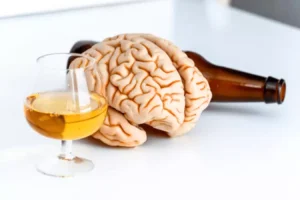
Furthermore, the greater the abuse or neglect experienced, the more severe their drinking problem was. Therapy can help people who suffered as a child to address those challenges and develop healthier coping skills. Adelstein and colleagues (1984) found that cirrhosis mortality rates are higher than the national average for men from the Asian subcontinent and Ireland, but lower than average for men of African–Caribbean origin. Cirrhosis mortality was lower in Asian and African–Caribbean women but higher in Irish women.
Alcohol’s role in co-occurring disorders
Drinking large amounts of alcohol at one time is dangerous, and can even lead to coma or death. Furthermore, you may become dependent on the feeling you get from drinking and find that these episodes increase in frequency. But when alcohol consumption gets out of control, you may find yourself on a dangerous path toward addiction. Alcohol misuse and the related problems present a considerable cost to society. Estimates of the economic costs attempt to assess in monetary terms the damage that results from the misuse of alcohol.
Treatment options for alcohol dependence
This theory, however, lacks clear experimental support, and the longer-term effects of alcohol worsen these disorders. The Recovery Village aims to improve the quality of life for people struggling with substance use or mental health disorder with fact-based content about the nature of behavioral health conditions, treatment options and their related outcomes. We publish material that is researched, cited, edited and reviewed by licensed medical professionals. The information we provide is not intended to be a substitute for professional medical advice, diagnosis or treatment.
- Alcohol use disorder causes acute central nervous system depression which leads to inebriation, euphoria, impulsivity, sedation and poor judgment.
- Drinking alcohol excessively can also get in the way of other activities, your relationships, and your self-esteem, which can further affect your mental health.
- Combined with medications and behavioral treatment provided by health care professionals, mutual-support groups can offer a valuable added layer of support.
- Self-harm and suicide are relatively common in people who are alcohol dependent (Sher, 2006).
- In general, offspring of parents with alcohol dependence are four times more likely to develop alcohol dependence.
- Childhood trauma can fuel problematic drinking in adulthood, because the person might use alcohol to cope with feelings of anger, depression, anxiety, loneliness, or grief.
Impact on your health
Opioids in turn stimulate the dopamine system in the brain, which is thought to be responsible for appetite for a range of appetitive behaviours including regulation of appetite for food, sex and psychoactive drugs. The dopamine system is also activated by stimulant drugs such as amphetamines and cocaine, and it is through this process that the individual seeks more drugs or alcohol (Everitt et al., 2008; Robinson & Berridge, 2008). There is evidence that drugs which block the opioid neurotransmitters, such as naltrexone, can reduce the reinforcing or pleasurable properties of alcohol and so reduce relapse in alcohol-dependent patients (Anton, 2008).
- One recent analysis found a sobering relationship between alcohol and health.
- It’s partly down to your genes,11 but is also influenced by your family’s attitudes to alcohol and the environment you grow up in.
- Feeling like you’re not in control of your actions, being unable to complete necessary tasks in your day or ignoring concerns about your drinking habits from loved ones are signals that you may have a problem with alcohol.
- Local protocols between alcohol treatment services and local safeguarding and family services determine the specific actions to be taken (Department for Children, Schools and Families, National Treatment Agency & Department of Health, 2009).
- Up to 17 million working days are lost annually in the UK due to alcohol-related absences and 58,000 working years are lost annually due to premature deaths related to alcohol (Leontaridi, 2003).

You can ask your healthcare professional to recommend a support group, or search for one yourself using the resources at the bottom of this article. Your healthcare professional might recommend one or a combination of the following approaches, depending on what they think might work best based on your specific situation and needs. If you think you might have alcohol use disorder, medications, behavioral therapy, and support groups can help, according to research. Binge drinking is when you have five or more alcoholic drinks for men, or four or more alcoholic drinks for women, on the same occasion, according to the Substance Abuse and Mental Health Services Administration (SAMHSA).
If you find that you ‘need’ to share a bottle of wine with your partner most nights of the week, or always go for a few pints after work just to unwind, you’re likely to be drinking at a level that could affect your long-term health. As dependence gets more established, you might find you end up spending most of your time thinking about alcohol or engaging in activities necessary to obtain, consume, or recover from the https://ecosoberhouse.com/ effects of drinking. Crystal Raypole has previously worked as a writer and editor for GoodTherapy. Her fields of interest include Asian languages and literature, Japanese translation, cooking, natural sciences, sex positivity, and mental health. In particular, she’s committed to helping decrease stigma around mental health issues. Get in contact with us by filling in our online insurance verification form below.
What are the symptoms of alcoholism?
They can research alcoholism to understand the underpinnings of the disorder, the signs of an overdose, and other important information. They can discuss co-occurring mental illnesses such as anxiety and depression. They can seek help from peer support groups and mental health professionals as well.
What is considered 1 drink?
Studies show that having multiple ACEs puts children at risk of poor school performance, unemployment, and high-risk health behaviors including smoking and drug use. Samantha Green, a psychology graduate from the University of Hertfordshire, has a keen interest in the fields of mental health, wellness, and lifestyle. When someone eats a piece of chocolate, the brain can find it very pleasurable and it stimulates the reward center in the brain. Because of this, a person is much more likely to want to eat chocolate regularly in the future. In this case, addiction is demonstrated as both a mental, or psychological, and chemical, or physical, affect in the brain, thus providing evidence that addiction is both psychological and physical.

What Effects can Alcohol Have on My Mental Health?
- It’s often at the center of social situations and closely linked to celebrations and enjoyment.
- Addiction can’t happen without exposure to agents, but that is hardly the determining factor.
- Genetic, psychological, social and environmental factors can impact how drinking alcohol affects your body and behavior.
- The effects of alcohol on the body from an addiction can affect your immune system and vital internal organs, such as the brain, heart, liver and more.
- Further, people who are alcohol dependent are twice as likely as moderate drinkers to visit their general practitioner (GP) (Fuller et al., 2009).
This disruption can lead to significant daytime fatigue and poor concentration, further demonstrating alcohol’s pervasive impact on daily functioning. If you’re simply looking to speak to someone on the phone or chat online for more advice on your own or someone else’s physiological dependence on alcohol drinking, get in touch with Drinkchat or Drinkline. If you’re worried about your drinking, get in touch with your local GP surgery, who will be able to help. Taking regular breaks from alcohol is the best way to lower your risk of becoming dependent on it.

Early Stage – Though deemed the “early” stage, this stage is where a regular drinking pattern develops. Tolerance becomes noticeable, as you must drink more to reach the desired effect and feeling. In this transitional stage, as the disease becomes more severe, you may experience frequent blackouts and find that drinking and alcohol consume much of your thoughts. Due to increased tolerance, when not drinking, you may experience mild withdrawal symptoms common to physical alcohol dependence, including anxiety, shakiness, headache, insomnia, heart palpitations, and stomach problems such as nausea or vomiting. In terms of services provided by community specialist agencies, the majority (63%) provide structured psychological interventions either on an individual basis or as part of a structured community programme (Drummond et al., 2005). Only 30% provide some form of assisted alcohol-withdrawal programme, and less than 20% provide medications for relapse prevention.
